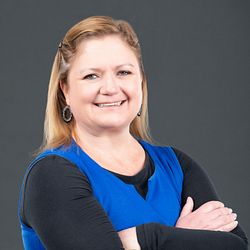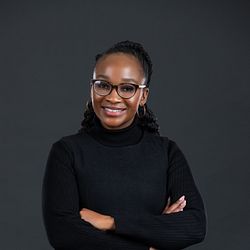
Press release -
The number of people in South Africa without a will is concerning, finds survey
A recent client survey conducted by Discovery Life reveals that, while 98% of respondents believe that having a will is important, almost a third of the participants conceded that they do not have a will in place (31%). With 12 to 16 September being National Wills Week in South Africa, the time is now to get a will drafted, especially if you have loved ones who are dependent on you for income and other necessities.
Discovery Life surveyed clients aged between 35 and 65 years old, to better understand whether they believed wills were important, how many had one in place and whether these wills were up to date.
“One of the key reasons given by respondents in our survey, as to why they do not have a will in place, was the issue of not having the time to prepare one,” says Gareth Friedlander, Deputy CEO of Discovery Life. “Some respondents acknowledged that they were not sure how to go about drafting their last will and testament.”
While only 31% Discovery Life data clients do not have a will in place, this is still significantly lower than the macro view, where the Master of the High Court data reveals that more than 70% of working South Africans do not have a will. The fact that many people do not have documentation in place to distribute their wealth and belongings after they have passed on is very concerning.
“Our carefully considered view is that our clients demonstrate that they benefit from a higher level of financial literacy as they are being guided by our financial advisers - but this in itself highlights the importance of being better financially educated in order to manage your own wealth properly,” explains Friedlander.
When questioned regarding when their will had last been updated, a surprising 67% of respondents advised that they have not updated their will in the last 12 months. Nearly a quarter (23%) expressed that the last time they updated their will was more than five years ago - an alarming statistic as the will in place could be considerably outdated, possibly even leaving assets to people who have since passed or excluding people born after the will was last updated.
“Passing away without a will – which is also called ‘dying intestate’ – creates serious problems for your loved ones who are left behind,” adds Friedlander. “If there is no will in place, unfortunately the Intestate Succession Act ultimately decides the pecking order of who receives your assets.”
Friedlander cautions that the absence of a will or even an outdated will could leave the people who matter the most to you without the means to cope financially.
Dying intestate not only means that an individual’s assets could potentially be inherited by someone you hardly know, but there are additional lengthy challenges to consider. It causes additional confusion and unnecessary stress for loved ones, during a time when they are already grieving a terrible loss.
“Without a will, you cannot leave instruction on who will care for your minor children should both you and your spouse not be around to do so,” warns Friedlander. “More importantly, without a will, you cannot choose your own executor to wind up your estate, or set up a trust to receive assets or cash on behalf of your minor children. Cash will then end up going to the ‘Guardian's Fund’.”
Proactive estate planning counters this by enabling your family to bypass time-consuming and expensive probate court proceedings, while simultaneously reducing family conflicts which often arise from estate disputes.
Friedlander advises individuals to update their wills at least once a year. There are also important life stages and events which may require that a will is updated more often than that. Examples of life changing events which require an extra urgent review of a last will and testament include getting married or entering a civil partnership, having a baby, purchasing a home, getting divorced, or if you have simply and unfortunately misplaced your original will.
The most important legacy an individual can leave for their loved ones, is an inheritance that is safeguarded from exorbitant administration fees or complicated processes, thereby ensuring that their legacy and their family’s inheritance is comprehensively protected.
“We call it Holistic Estate Planning,” says Friedlander. “Protecting your legacy ensures that legal costs and administration demands associated with wrapping up a life do not erode wealth for loved ones.”
Friedlander explains that The Discovery Estate Preserver (DEP) assists to cover the costs associated with winding up an estate after death including executor fees, testamentary trustee fees and property conveyancing fees. “Through the Discovery Estate Preserver, individuals have access to benefits such as our Liquidity Benefit which pays a lump sum to the beneficiary within 48 hours of a loved one’s death to assist in covering immediate expenses,” says Friedlander.
To find out more about our Holistic Estate Planning solution speak to your financial adviser today.
Topics
Discovery information
About Discovery
Discovery Limited is a South African-founded financial services organisation that operates in the healthcare, life assurance, short-term insurance, banking, savings and investment and wellness markets. Since inception in 1992, Discovery has been guided by a clear core purpose – to make people healthier and to enhance and protect their lives. This has manifested in its globally recognised Vitality Shared-Value insurance model, active in over 35 markets with over 20 million members. The model is exported and scaled through the Global Vitality Network, an alliance of some of the largest insurers across key markets including AIA (Asia), Ping An (China), Generali (Europe), Sumitomo (Japan), John Hancock (US), Manulife (Canada) and Vitality Life & Health (UK, wholly owned). Discovery trades on the Johannesburg Securities Exchange as DSY.
Follow us on Twitter @Discovery_SA








